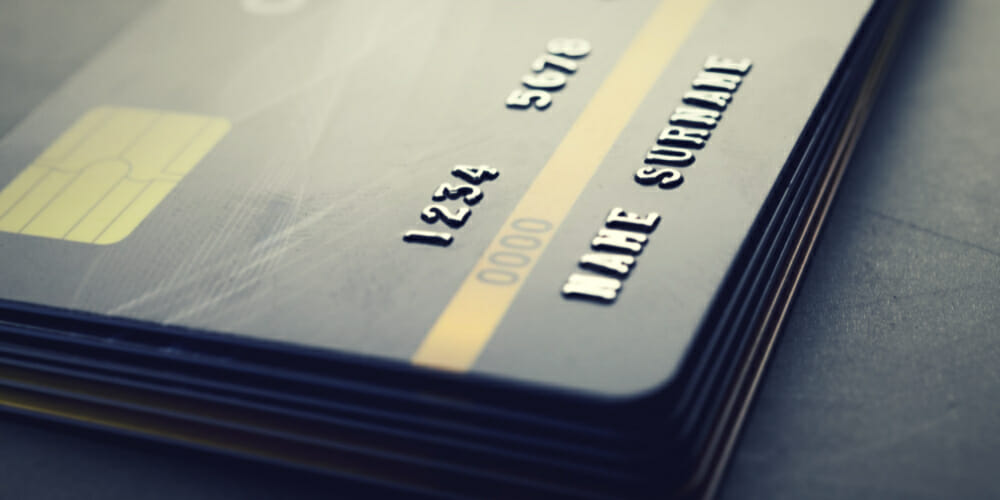If you’re wondering what a postal code on a debit card is and how you can use it. In that case, the answer is simple – it’s a vital component of an effective payment system that helps to ensure fast and secure transactions for cardholders everywhere. So, what is a postal code on a debit card?
A postal code is a set of unique numeric digits or alphabets. It is not part of your debit card numbers; it is your current living residence. It is a security code you always need to make a transaction with your card to prevent identity theft and other cybercrimes.
This article will help you get all the credit card postal code information and its importance for a debit card holder. However, you will also understand the term postcode and AVS better. So, let’s get started!
Debit Card Information: Postal Code
A debit card is a payment card that allows you to make purchases and withdraw cash at ATMs using funds from your checking account. A piece of critical information associated with your debit card is your postal code, which merchants and financial institutions use to verify where you are making transactions.
A postal code on a debit card is a unique combination of digits used to identify the cardholder’s location. This code helps facilitate transactions by allowing financial institutions, merchants, and other organizations to route payments or requests for information to the correct recipient. This term is also called ZIP codes, Postcodes, Billing ZIP codes, and Billing codes.
The postal code information is associated with the account holder’s billing address. In short, Having your debit card’s postal code is essential because it ensures the safety and security of your debit card transactions.
How To Find The Postal Code?
When you need to obtain your debit card’s postal code, you can take a few different steps. The first is to check the monthly statement bill of your card. You mentioned your current residence address during the filling of your card form.
Alternatively, you may be able to find this information on your online banking account or on any correspondence that you have received from your debit card provider. Another option is to contact the debit card company directly, either by phone or online, to request this information. Ultimately, finding your debit card’s postal code should be a straightforward process you can complete in just a few minutes.
Importance Of Postal Code
The postal code is an essential component of modern communication, providing a simple and effective way to identify locations and facilitate transactions. Whether you are paying for items online or in-store, checking the balance on your debit card postal code is crucial.
Verify Transactions
The postal code plays a vital role in preventing fraud on a larger scale by verifying the transaction. By analyzing patterns of activity based on your postal code, financial institutions can detect suspicious activity and take measures to prevent fraud.
For example, if there is an unusually high number of transactions coming from your postal code in a short period, your bank may flag the account for review.
Security
Postal code provides an extra layer of security that safeguards your money in the bank account. No one can access your account without the help of this code; it acts like an entry-level password to process transactions.
If you lost your debit card, notify your card provider. They will block your debit card in no time, and the rest of the money will remain safe.
What Is A PostCode?
A postcode is a combination of letters and numbers used to indicate the location of an address in a postal system. In many countries, postcodes are associated with a particular geographic area and can be used to help businesses and residents identify where they are located.
Postcode, also called a ZIP code, is an identifier assigned to every address in a particular geographical area. This code makes it easier for mail carriers and other delivery services to quickly and accurately navigate their routes, saving time and improving efficiency.
While postcodes are an essential part of many postal systems worldwide, they can vary in structure and format depending on the country or region. For example, postcodes in some countries might consist of a single numeric digit followed by several letters, while other postcodes may be a combination of numbers and letters.
Postcodes play an essential role in helping to facilitate mail delivery in many countries around the world and can help enhance communication and connectivity between individuals and businesses.
Overall, postcodes are a vital component of debit card transactions and help ensure that payments are processed smoothly and efficiently.
Benefits of Using Zip/Postal Code
Whether you’re running a business, making a purchase, or simply sending mail to friends and family, using a zip or postal code is essential to getting your message across. Debit cards include increased convenience and security for customers.
Postal codes or Zip codes offer enhanced security features such as fraud protection. They are also crucial for managing financial transactions. For example, many online retailers use postcode verification to reduce instances of fraud and ensure that customers are using their actual credit cards when making a purchase. It allows them to protect their customer’s financial information and build trust.
They also help merchants by verifying customers’ identities and enabling faster and more convenient transactions. They are an essential part of modern transactions, providing a convenient way to track shipments and payments. They are also used for demographic purposes, helping businesses better understand their customers and effectively target their marketing efforts.
Overall, Postal Code/Zip Code debit cards are an excellent choice for anyone who wants to make purchases quickly and efficiently while keeping their personal information secure.
What is Address Verification Service [AVS]?
Address Verification Service, or AVS, is a service provided by payment processors that verifies the accuracy of an individual’s billing address before authorizing a transaction. AVS compares addresses submitted by the customer at checkout to those on file with their credit card company or bank.
It helps to prevent fraud and verify that transactions are legitimate. AVS is also used to help prevent identity theft by comparing the shipping address with the billing address. Overall, AVS is an essential tool that helps protect businesses and consumers against fraud.
How Can AVS & Postal Code Prevent Fraud?
AVS, or Address Verification Service, is a tool that is commonly used by businesses to help prevent fraud. By checking the billing address associated with a credit card transaction against the address stored in the AVS database, businesses can determine if any discrepancies exist and take action accordingly. It helps to protect both businesses and customers from fraudulent activity.
In addition to AVS, another tool that businesses can use to prevent fraud is the credit card zip code. By determining whether the postal code associated with an order or transaction matches the one listed on the customer’s billing statement, businesses can better understand whether any fraudulent activity may occur.
Overall, AVS and postal codes are powerful tools for businesses to prevent fraud. Businesses can better protect themselves and their customers from fraudulent activity using these tools.
AVS Effects on Businesses
The Address Verification Service, or AVS, is a service offered by debit card providers that help businesses verify their customers’ addresses before processing transactions. It helps to prevent fraud and protect businesses against losses due to chargebacks.
While AVS can have some adverse effects on businesses, such as increased transaction costs or slower processing times, it also provides several benefits, including reduced risk of fraud and increased customer satisfaction, and many more.
Less Returned Mails
AVS provides an excellent opportunity for companies to verify the customer’s address before shipping it. It helps the company save money because if the parcel is sent to an incorrect or non-existent address, it will cost money. Businesses will waste more advertising dollars the longer they continue to carry returned mail.
Improved Marketing Efforts
Companies communicate with their audiences through printed materials to increase reach and engagement. Address validation software can help your business in a variety of ways.
Customer Satisfaction Rates
Address Verification Service helps small businesses and many companies to ship their products to the correct address. It also makes sure that the transactions made by customers are safe and secure. It protects the customer’s identity and personal information.
Prevent Fraud
It is one of the businesses’ most widely used methods to prevent fraud. This program compares the address with the debit card’s address on file with the bank. If the address doesn’t match, the transactions are denied automatically. In this way, AVS can assist prevent fraudulent transactions from taking place by doing so.
Businesses can reap many benefits if they can manage the AVS process effectively.
FAQs
Is the Zip Code Mentioned on a Debit Card?
No, the five-digit zip code is not mentioned on the debit card. It is part of your billing address depending upon the information you provide when applying for the debit card, such as your home address.
It should be simple to determine the billing address if the debit card is yours; however, if you have many houses or move frequently. In that case, you must examine your bank statements or any other financial papers relating to the card to determine the credit card’s billing address and zip code.
Does Zip Codes and Postal Codes are Same?
No, the purpose of the zip code and postal code are pretty similar, but they differ. The United States and the Philippines are the two countries that utilize zip codes the most. But the remainder of the world’s countries, which are dispersed all over the place, usually use the postal code.
How to find the Postcode?
There are many different ways to determine the postcode;
- Try to find the postcode with the help of online search engines or use postcode finder apps.
- You can also find your postcode by visiting your nearest post office.
- Use the phonebook to find postcodes of your area.
Conclusion
A postal code on a debit card is a unique identifier used to help process payments and other transactions. This code may consist of numbers, letters, or both. In addition to helping with payment processing, electronic funds transfers, and fraud detection, a postal code can also help track customer spending habits, identify fraudulent activity, and more.
Overall, a postal code on a debit card is an essential part of the payment processing process and plays a vital role in modern commerce.












